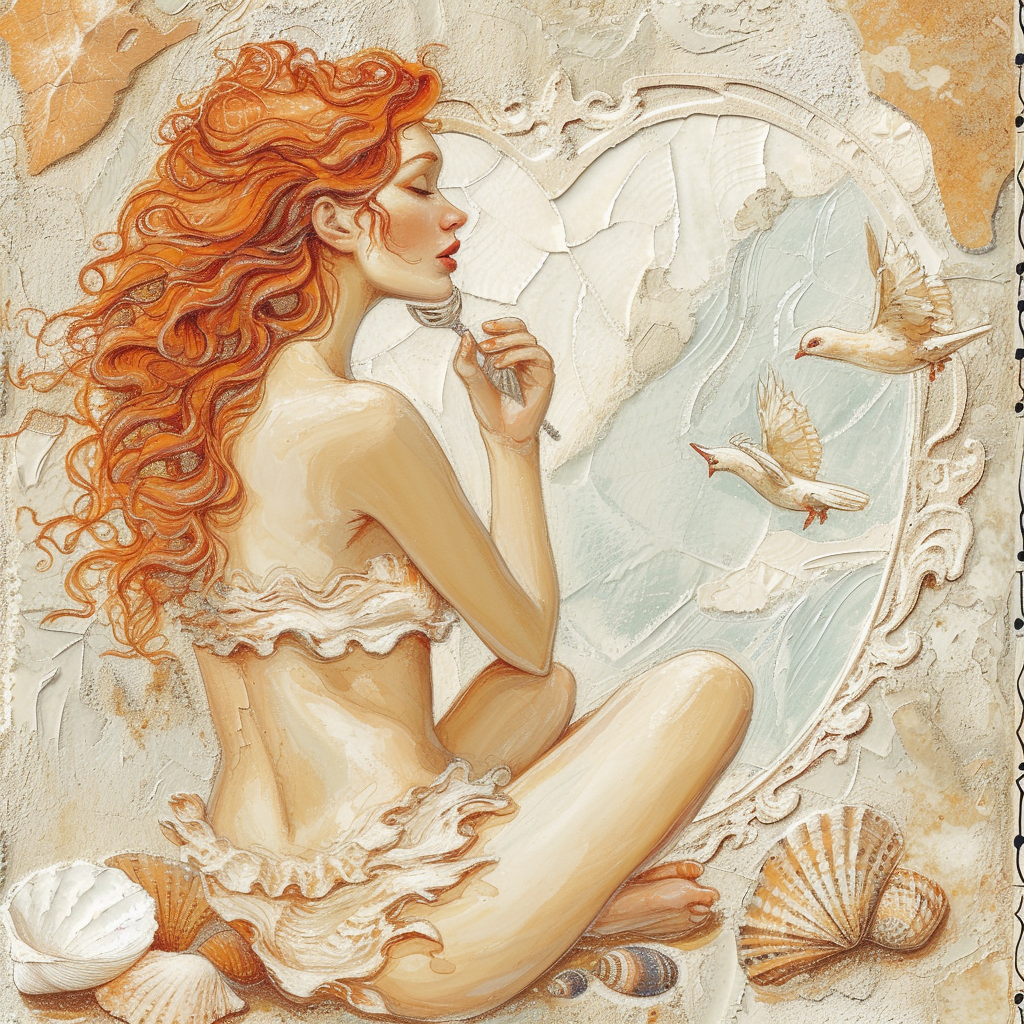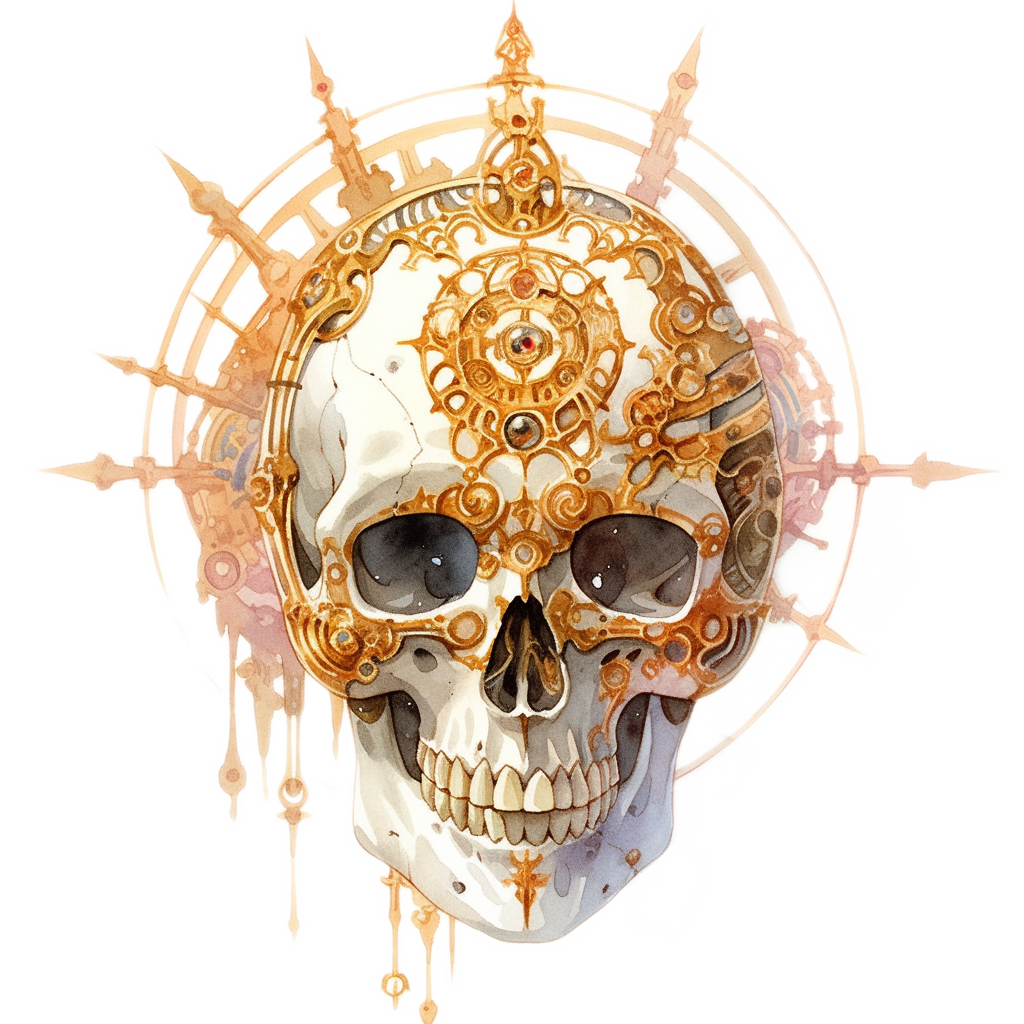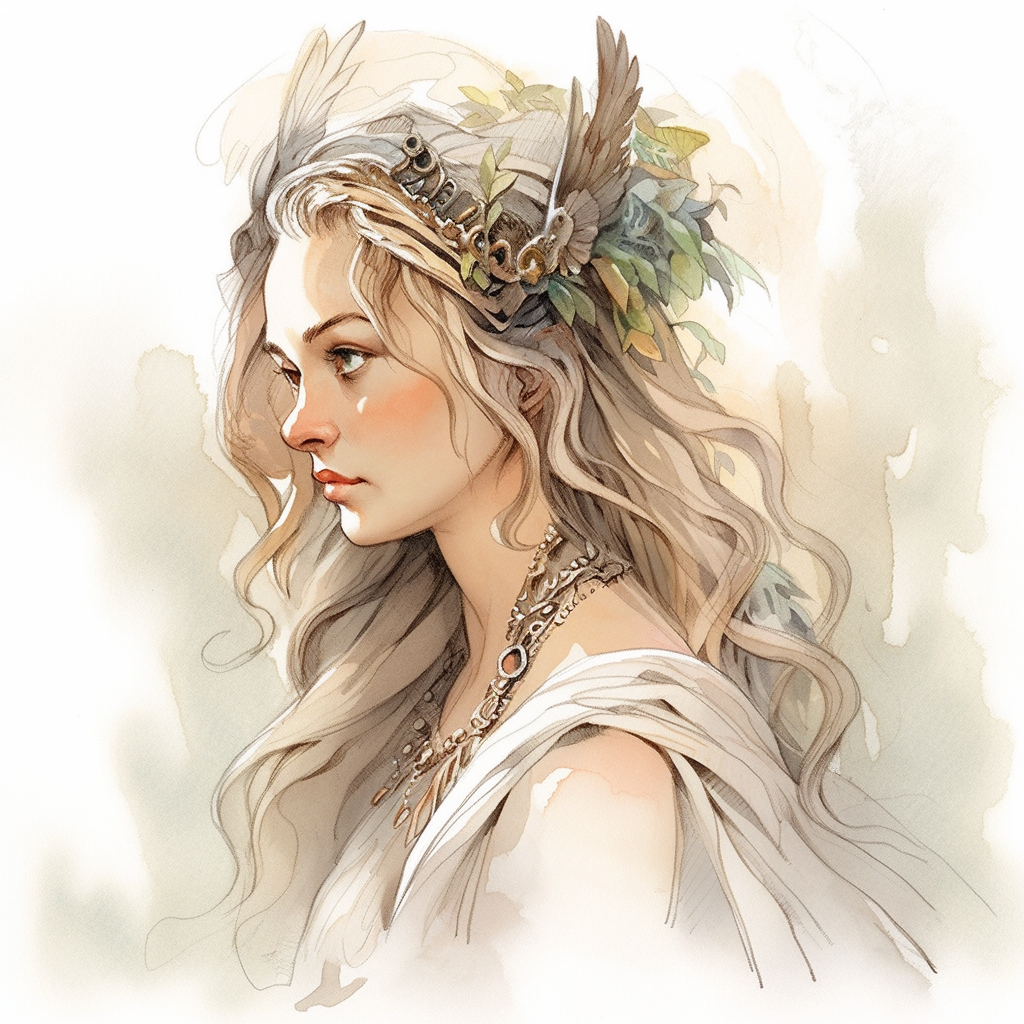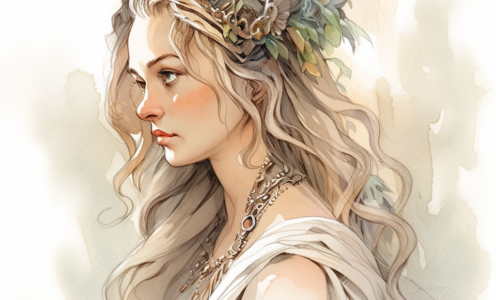Aphrodite
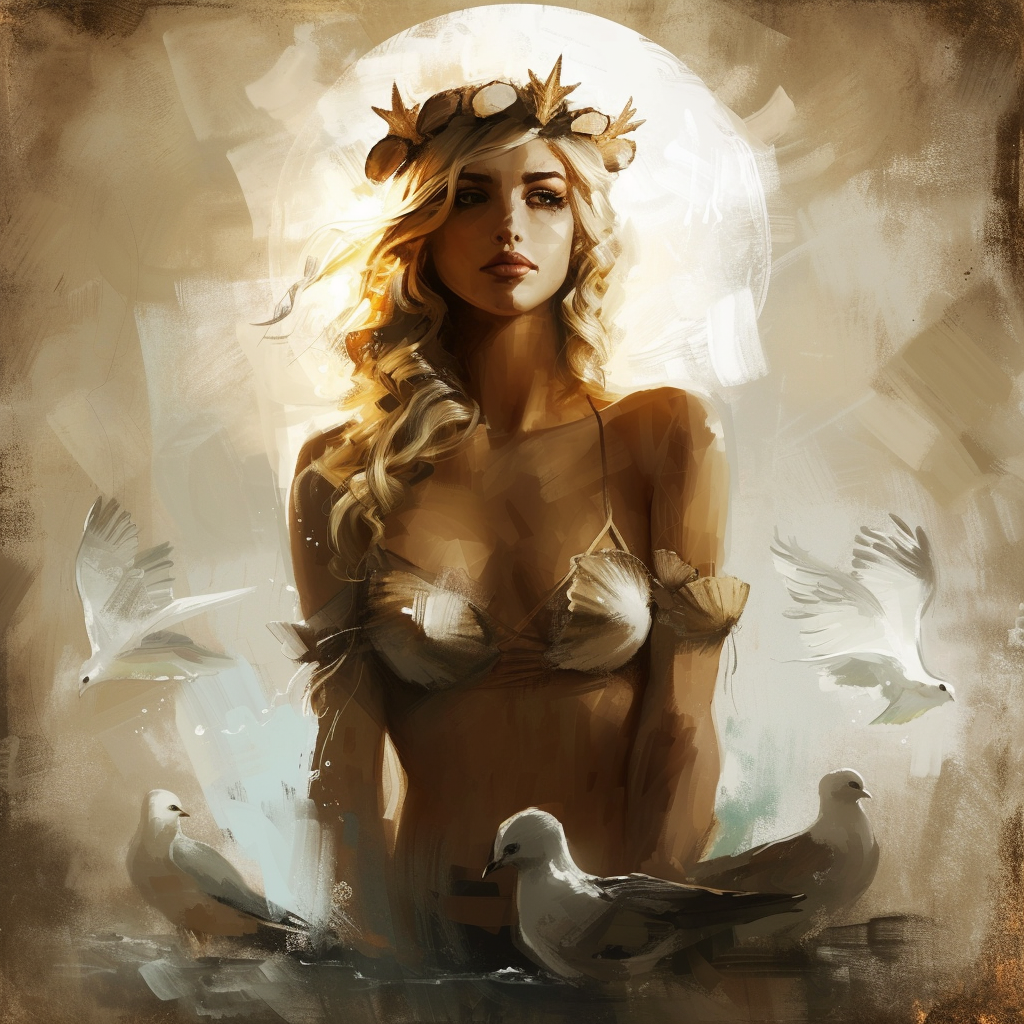
Venus. CG intermediate power of sexual passion, beauty, fertility (She/Her)
Pantheon: Greek
Symbol: A seashell
Realm: Arborea / Olympus / Olympus / Aphrodite’s Palace
Known Proxies: Anchises (planar human proxy priest [he/him] / CG), one of Aphrodite’s former lovers, and their son Aeneas (planar human proxy fighter [he/him] / Society of Sensation / CG); Adonis (deceased).
Goddess of beauty and sexual passion, Aphrodite appears as an extraordinarily beautiful woman wearing, when dressed at all, a simple gown adorned with jewellery. She is often accompanied by doves, and is borne through the heavens in a carriage drawn by white swans.
Aphrodite’s genealogy is disputed: some say she is the daughter of Zeus and a little-known titaness called Dione; most though believe she is older than the king of the gods, having been born from a mixture of sea foam and the celestial semen of castrated Uranus. She is married, against her will, to the god Hephaestus, who adores her despite her numerous infidelities, most notably with Hephaestus’ half-brother Ares.
Though often referred to as the goddess of love, affection and devotion are not part of Aphrodite’s province, nor her personality. Where Hera is the patroness of marriage and Artemis of childbirth, Aphrodite is the goddess of procreation only so far as it often results from venereal activities. Her power is desire, attraction, and all-consuming passion, against which even the gods rarely have much defence. The passion of Aphrodite might result in the most inspired art or the most destructive rage – both are sacred to her. In her aspect as Aphrodite Areia (“Warlike”), she is the embodiment of lust, for blood as much as for sex. Her capacity for anger and jealousy can rival that of Hera, and her capacity for manipulation and deception far surpasses even that of the queen of heaven.
Despite this, Aphrodite is usually found to be a gentle goddess, smiling and laughing even in the darkest of situations. She can be fickle and callous but rarely desires to be cruel. Her goal is the maximisation of immediate pleasure with little interest in its consequences. As Aphrodite Hetaira (“the Courtesan”) she is the champion and protectress of sex workers.
Her offspring are too numerous to list in full, but by her most frequent lover Ares she is the mother of Eros, god of love, Deimos & Phobos, gods of panic and fear, and Harmonia, goddess of concord. Though married to Hephaestus they have had no children together. Tales of Aphrodite’s affairs with mortals also abound.
Clergy, Temples, and Worship
Priests and priestesses of Aphrodite preside over her domains of beauty and pleasure, charged with encouraging both as much as possible. Advocates of form over function, they espouse the belief that beauty and goodness are bound together, and that the enhancement of one will naturally increase the other. In some cultures they may even practice sacred prostitution, either as an act of personal devotion or in service to their communities.
Temples to Aphrodite are beautiful even in comparison to those of the other gods, adorned with the finest of the visual arts. They are commonly located in cities, in fertile areas of the countryside, and also by the shore in places where the waves are churned to foam amongst the rocks. They are often the site of coming-of-age ceremonies, more so than weddings, with the onset of sexual maturity marking a mortal’s entrance into Aphrodite’s power. Religious communities devoted to Aphrodite are more hedonistic than monastic.
Source: Aaron Masters and Jon Winter-Holt
